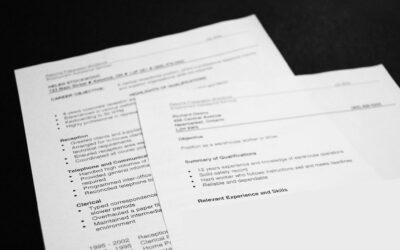There are a number of situations that come up during job interviews that require a bit of finesse to navigate. Especially given the power dynamics of job interviews. You may feel awkward trying to address these situations with the interviewer, however, not addressing your concern can lead to making misinformed decisions. Here are a couple of those situations and how to address them.
The company has terrible online reviews from employees.
If you’re interviewing with a company that has terrible reviews on a site like Glassdoor or otherwise has reputation problems, you might be wondering if there’s any way to ask about it in your interview.
As long as you bring up the topic professionally, it’s a perfectly legitimate thing to ask about. You’re considering linking yourself to this company for the next few years, so you shouldn’t let fears of awkwardness stand in the way of getting your concerns addressed.
The key is to frame it in a way that doesn’t put your interviewer on the defensive. So, your tone should be collaborative rather than accusatory; you want to sound as if you’re giving them the benefit of the doubt (even if secretly you’re not). For example:
“I noticed that the company’s reviews from employees on Glassdoor frequently include concerns about culture and work hours. I’m curious what your take is on that and whether it’s something the company is working to change.”
You’re getting conflicting information about the job from different interviewers.
Talking to multiple people throughout an interview process can be a huge benefit because you can get different perspectives on the job, the culture, the challenges of the role, and so forth. But if you notice that you’re hearing different things about key elements of the role — like what the job’s focus will be or what’s most important for the person to achieve in the first year — it’s important to clarify what’s going on. Otherwise you risk ending up in a job that turns out to be different than what you were signing up for, or where no one can agree on how your success should be measured. How to say it:
“I’ve heard different perspectives on the job from Anna, Fergus, and Portia. It sounds like some people want to see the role focus on expanding the training curriculum and some people want to see it focus on bringing in new business. Can you help me get a better sense of how those will be balanced, and whether there’s internal alignment about what people want to see from the position?”
Remember the interview is a two-way street, you need to gather enough information to make an informed decision. Don’t let the awkwardness of the interview keep you from asking the difficult question.
 Rick Christensen: Director, Career Transition Practice
Rick Christensen: Director, Career Transition Practice
Rick has been a career consultant for almost 30 years, serving a very broad-based and diverse clientele. His specialties include effective group facilitation, one-on-one coaching and consultation at all levels including senior executives.
Rick’s passion is coaching individuals through career transitions, developing career management strategies and in identifying and sharpening competencies to open doors to new opportunities. His efforts have assisted thousands of individuals achieve their full potential.
Contact Rick at: Rick@CareerDevelopmentPartners.com




